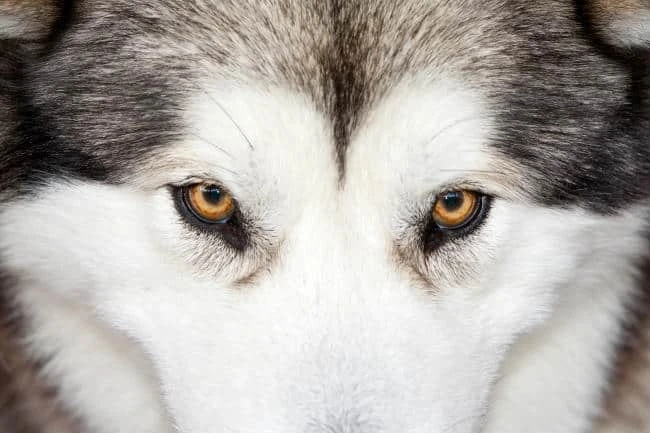How Proper Diet Can Prevent Disease In Our Pets

Vets treat most animal health problems with antibiotics or pain medications. However, nutrition has a great influence on the development of animal illnesses and you can prevent many diseases with a proper diet, especially kidney, liver, skin and digestive tract problems. While diet may not always cure a disease, it can usually ease the symptoms.
Gastrointestinal Diseases
You can easily treat vomiting and diarrhea in dogs and cats. These problems come from many causes, but dietary changes to treat the symptoms are standard. For non-specific vomiting and diarrhea, withhold food (but not water) for 24 hours and follow it with a light meal of boiled rice and chicken. Simple food can quickly cure minor upsets and eliminate the need for an expensive tip to the vet.
For pets with food allergies, there are special brands formulated to control allergy symptoms and ease the strain on your pet’s digestive tract. For example, James Wellbeloved uses highly digestible ingredients and has a range of products that exclude common allergy triggers such as soy and wheat.
Irritable bowel disease, colitis or skin problems may indicate intolerance to a pet food ingredient. Like humans, some animals are intolerant of soy, wheat or dairy products. Others develop gastrointestinal distress from protein sources such as fish and pork. Avoid pet foods that contain these ingredients.
If your pet has exocrine pancreatic insufficiency (EPI), pancreatitis or a bacterial overgrowth in the small intestine, they need a highly digestible diet. Avoid commercial and homemade foods that are high in fat, which is hard to digest.
Constipation is caused by a lack of fiber or fluid. You may need to find a high-fiber pet food. Make sure that your pet drinks plenty of water and soak dry pet food in water to increase their fluid intake.
Here is a great site with hundreds of dog food reviews.
Obesity
Pet obesity affects overall health, the same as in humans. Overfeeding and lack of exercise make pets gain weight and puts their health at risk. You can help reduce your pet’s caloric intake by feeding them a low-fat food — dry food usually contains less fat than canned or wet foods. For additional advice on pet weight loss, ask your veterinarian for a diet and exercise plan, and follow it consistently.
Liver Disease
Protein is an important nutrient for animals suffering from liver disease. There are specially designed foods for these pets, such as L/D by Hills, that contain highly digestible proteins, carbohydrates and fats that reduce stress on your pet’s liver. Pets with different stages of liver disease require different levels of protein, so ask your veterinarian to recommend the proper level.
Kidney Disease
Animals with kidney disease need more water and less sodium. Dried food will make pets thirsty and encourage them to drink more. Veterinarians often recommend food by Hills and Walthams for pets with kidney disease.
Lower Urinary Tract Disease (LUTD)
Un-neutered male cats get LUTD more than other animals. Crystals form in the urine and cause the condition. Cats under stress are also susceptible to idiopathic cystitis, caused when their bladder gets inflamed, which makes urinating difficult and painful. Encourage your pet to drink plenty of water in stressful situations, such as moving house or introducing a new. Sufficient water ensures that the pH of the urinary tract remains between 6.0 and 6.5, limiting the risk of blockages.
To prevent calcium oxalate urolithiasis, a painful condition that can require surgery to remove crystals, feed your pet a diet that is low in salt, protein and calcium.
Cardiovascular Disease
Cardiomyopathy occurs when your cat lacks the vital nutrient taurine, and can be life-threatening. Cats with a taurine deficiency are at high risk of contracting severe heart disease.
Congestive heart failure often couples with malnutrition. By giving magnesium and potassium supplements under vet supervision, you can reduce the risk of your pet getting this life-threatening disease.
You can prevent other cardiovascular problems with a diet that is high in Omega-3. This fatty acid can help reduce the risk of high blood pressure (or hypertension), which contributes to other health problems such as strokes.
Endocrine Disease
Diabetes is common in pets, especially if they’re overweight. If your overweight pet has diabetes, it may need a low-calorie diet tailored to the species. Dogs benefit from diets high in complex carbohydrates, but cats can’t tolerate high-fiber or high-carbohydrate diets.
Skeletal Disease
Malnutrition is the most common cause of problems with bones and joints, especially if your pet’s diet lacks calcium. If your pet has this kind of trouble, your vet will likely prescribe a highly palatable, nutrient-dense diet to support bone health and joint function.
Nutrition can play a role in the development of many animal health conditions, particularly when it corrects a deficiency. Changing your pet’s diet can also reduce many symptoms of underlying diseases. If your pet has one of the conditions above, or shows symptoms of them, ask your veterinarian how you can make dietary changes to help. A diet customized to your pet’s needs may eliminate expensive medications that can be hard to administer, and can also improve their quality of life.





